- Online Patient Services
- Patient Booklet
- e - Medical Records
- Online Expert Opinion-NAVYA
- Donation to TMC
- Online Hospital Statistics
- Pensioner Portal
- Travel Facility
- Schedule of Charges
- FAQs
- International Patients Advisor
- TMC - Annual Report
- TMC -Performance Statistics
- TMH Facts: average per day
- Classification of Surgeries
- D.A.E
- Govt of India Sites :
- International Affiliations
- Pancreatic Cancer India
- Tobacco Act
- Observership Application
- Teleconsulting Services
- TMC
- Home
- About Us
- Cancer Information
- Patient Services
- Departments
- NCG
- Disease Management Group
- Education and Research
- Events
Rehabilitation Service
- Occupational Therapy
- Physiotherapy
About US Department Activity Faculty Staff Education & Courses Contact US
About Us
|
Cancer and cancer treatments may lead to changes in individual’s physical, cognitive, and emotional well-being causing interruptions in their daily routines, affecting how they perform their self-care, work, leisure, or social activities. |
Department Activity
|
Occupational Therapy attends to numerous cancer diagnosis on day to day basis like Brain and Spinal tumors, Head and Neck cancers, Bone and Soft Tissue cancer, Breast cancer(with and without breast reconstruction), GU GI cancer, Gynecological cancer, Lung cancer, Patients in palliation /end of life care, Adult and Pediatric hematology patients, etc. Occupational Therapists at Tata memorial Hospital are skilled and are experienced in many areas of rehabilitation and customize the treatment based on patients’ unique condition and needs. There are much impairment related to cancer and its treatments which are amendable to Occupational therapy. The few impairments and conditions are listed below which we treated by Occupational therapists on daily basis. |
|
Faculty Staff
 |
|
Name |
Dr. Manjusha Vagal |
Designation |
Officer In-charge Occupational therapy |
|
Contacts - No. |
Off: 022- 24177227 |
|
Email id |
vagalmanjusha@yahoo.com |
|
Qualification: |
PhD, MOT, CLT (USA), FACOT, HCPC (UK) |
Specialties: |
Lymphedema, Cancer related fatigue, Breast cancer, Gynecological cancer, Bone and soft tissue cancers, Orthotics, Palliative care |
|
|
|
|---|---|
 |
|
Name |
Dr. Rebeka Marri |
Designation |
Scientific Assistant C, Occupational therapist |
|
Contacts - No. |
Off: 022 24177000 Ext. 4227 |
|
Email id |
rebeka_mortha@rediffmail.com |
|
Qualification |
BSc OT, MSc. (Psychology), CLT (USA) |
Specialties: |
Bone and Soft Tissue Cancer, Lymphedema, Breast Cancer, Palliative Care, Prosthesis and Orthosis, Head and Neck Rehabilitation. |
|
|
|
|---|---|
Name |
Dr. Shruti Velaskar |
Designation |
Scientific Assistant C, Occupational therapist |
|
Contacts - No. |
022 24177000 Ext. 4227 |
|
Email id |
velshruti@gmail.com |
|
Qualification |
BSc OT,CLT (USA) |
Specialties: |
Quality of life related research, Lymphedema, Pediatrics and neurological rehabilitation, Gynecological and Breast cancer |
|
|
|
|---|---|
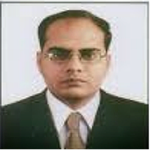 |
|
Name |
Dr. Jagmohan Lal Meena |
Designation |
Scientific Assistant C (Rehabilitation), Occupational Therapy Department |
|
Contacts - No. |
022- 24177000, Ext No. - 4227 |
|
Email id |
jlm_therapist@yahoo.co.in |
|
Qualification |
MOT (Mumbai), CLT (USA), CWA (USA), CKTT (UK) |
Specialties: |
Breast cancer, Lymphedema, Hand & Upper Extremity conditions, Locomotor disability |
|
|
|
|---|---|
 |
|
Name |
Dr. Neelam Rane |
Designation |
Occupational Therapist |
|
Contacts - No. |
9969871345 |
|
Email id |
neelam.rane91@gmail.com |
|
Qualification |
M.O.Th. |
Specialties: |
Musculoskeletal & Neuro Rehabilitation, Orthosis fabrication and pre and post prosthetic training |
Education & Courses
|

ABOUT US
The Physiotherapy department at Tata Memorial Hospital is recognized nationally as pioneers in the field of cancer rehabilitation. Physiotherapy department has five senior full time therapists, three research therapists and two contract therapists dedicated to the comprehensive cancer care. Cancer and its treatment often affect the normal functioning and sometimes cause prolonged functional limitation and activity participation. Physiotherapists at Tata Memorial Hospital are well experienced in the assessment and treatment of wide range of physical dysfunction and work with various Disease Management Groups (DMG) to provide holistic care. The staff of Physiotherapy department are office bearers and members of Society of Onco Physiotherapists and life members of Indian association of Physiotherapists. They are faculty for various in house education programs and for programs conducted by other Physiotherapy colleges across the country.
DEPARTMENTAL ACTIVITY
We recognize that all cancer patients are unique and need individualized physiotherapy program to meet their rehabilitation requirements. The department provides tailor made physiotherapeutic program to the patients in outpatient department and in various inpatient wards. The Department provides the following clinical services.
Respiratory Physiotherapy
Respiratory physiotherapy is an essential requirement for patients undergoing treatment for cancer. This service is provided preoperatively and post operatively after any major surgery, during adjuvant therapies like chemotherapy and radiotherapy, in palliative care and is the most important service in the Intensive care unit and for the critically ill patients. It is designed to improve respiratory efficiency, promote expansion of the lungs, strengthen the respiratory muscles, and remove secretions from the respiratory system. Therapy program includes postural drainage, chest percussion, chest vibration, positioning, breathing exercises, incentive spirometer, suctioning and coughing techniques
Pulmonary rehabilitation
The Pulmonary Rehabilitation program is delivered by a trained physiotherapist specialized in cardio-pulmonary rehabilitation. The participants for this program are patients posted for thoracic or major abdominal surgeries and patients with chronic pulmonary disease. This program includes physical evaluation, exercise training and education. The components of pulmonary rehabilitation program include education sessions discussing disease and treatment progress and importance of pulmonary rehabilitation, breathing exercises, incentive spirometer, coughing, huffing techniques, self-drainage techniques, energy conservation techniques, Exercise prescription and training and Home based exercise program. An Exercise Information booklet is provided at the end of this session. These pamphlets are available in English, Hindi and Marathi. Kindly see the patient information section for the exercise pamphlets
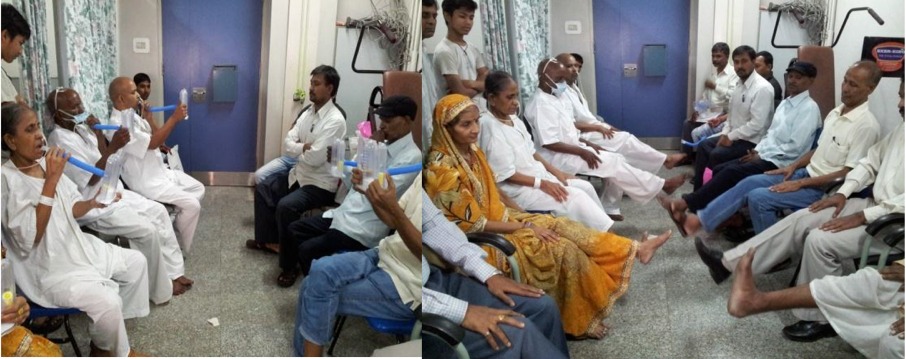 |
|---|
Pulmonary Rehabilitation |
Post breast surgery care program
This group therapy program is held on every Tuesday, Wednesday, Thursday, Friday and Saturday between 10.30 a.m. to 12.30 p.m at 9th Floor, Homi Bhabha Block, Tata Memorial Hospital. These sessions, conducted jointly by a Physiotherapist and a volunteer aims to provide breast cancer patients and their care givers a complete comprehensive care program to help them cope with the disease and treatment. The session includes.
- Counseling
- Drain care, Suture care, Arm care
- Arm exercises taught in detail
- Education about self breast examination
- Information regarding breast prosthesis and wigs.
- Care during adjuvant treatment
Drain and suture care: As the patients are discharged from the hospital on the first post operative day, a detailed instruction regarding drain care and suture care is provided.
Post-Operative Arm care: Skin and arm care post lymph node removal in these patients is very important. Detailed explanation and printed instruction materials are provided to the patients.
Importance of Exercise: No matter what type of surgery, it is important to do exercises thereafter. Exercises help to maintain mobility of the arm and enable the patient to resume their normal daily activities. During Radiation Therapy, exercises are important to keep the arm and shoulder flexible. Two instruction pamphlets: 1) Instructions and exercises following breast cancer surgery 2) Self breast examination are given at the end of the session. These pamphlets are available in English, Hindi and Marathi. Kindly see the patient information section for the exercise pamphlets.
Intensive care
Our department caters to the need of Patients who require intensive care post surgery, chemotherapy related complications such as neutropenia and pneumonia, as well as critically ill patients on artificial ventilation. Not only drainage of secretions and improving/ maintaining optimal ventilation is essential to these patients, but preventing complications related to immobility is also vital for their recovery. Early mobilization has become an integral part of our ICU care. Early mobilization, depending on the clinical condition of patient, includes early limb physiotherapy, mobilization in bed, in chair or wheelchair and walking with support. Mechanical percussors are used along with manual chest physiotherapy maneuvers to treat the enormous volume of patients who have retention of secretions.
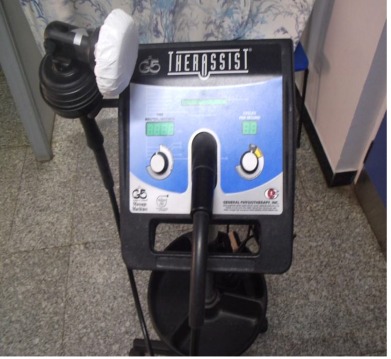 |
|
|---|---|
Mechanical Percussor |
|
Lymphedema services
Lymphedema is an abnormal swelling caused due to accumulation of protein rich fluid in the superficial tissues by a compromised lymphatic system. It is a serious condition if left untreated. Lymph edema is caused by injury to the lymphatic vessels due to surgery, radiation therapy, infection and scarring. Lymphedema can affect the arm and breast following breast cancer treatment, legs following gynecological / urological cancer treatment and face following head and neck cancer treatment. Decongestive Lymphatic Therapy (DLT) is the standard treatment offered for patients with lymphedema at TMH. DLT includes Manual lymphatic drainage (MLD), Multi Layered Lymphedema Bandaging (MLLB), Compression garment, remedial exercises, pumping exercises, skin care, precautions and Self Lymphatic Drainage (SLD). Treatment consists of Intensive phase, for a minimum of 2 weeks to a maximum of 6 weeks, followed by Maintenance phase which will be home based self-care program.
Geriatric Rehabilitation
Geriatric patients from different DMGs and from Geriatric clinic are assessed using different tools and rehabilitated for mobility, endurance, strength and balance using Active passive trainer, treadmill and thera – station. A state of the art equipment, Virtual Rehabilitation is used for mobility, balance and cognitive impairments.
 |
|---|
| Virtual Rehabilitation |
Mobilization & Ambulation
Patient mobilization is an important component of the physiotherapy program which enables early return to function and prevents complications like DVT, pulmonary embolism, retention of secretions, atrophy, contractures and urinary retention.
Early mobilization includes early limb physiotherapy, mobilization in the bed, mobilization in bedside chair or wheelchair, or make the patient stand or walk with support, depending on the clinical condition of patient. Walking aids like walker, crutches and stick are prescribed as and when required and the patients are taught how to safely walk, climb stairs and maintain balance.
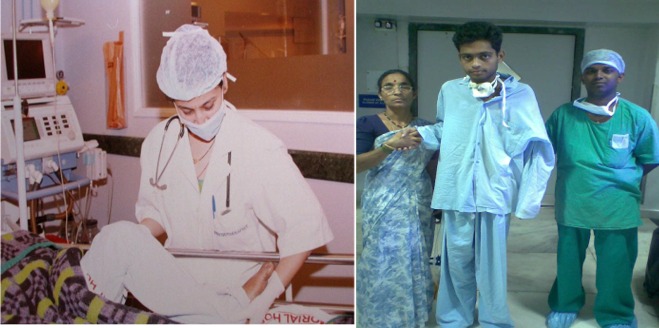 |
Mobilization |
|---|
Mobility
Early mobility exercises are imperative to improve range of motion of the joints involved, to prevent stiffness and to achieve functional independence. The physiotherapist provides with active, active assisted or passive mobility exercises as and when required. The department is fitted with a continuous passive motion machine, a treadmill and an active passive trainer for improving mobility.
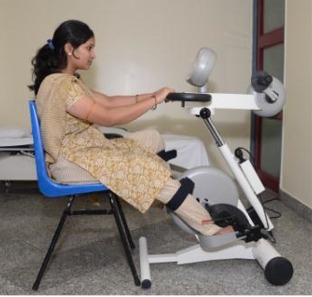 |
Active Passive Trainer |
|---|
Strength training
Strength training is done progressively using weight cuffs and resistance bands. Physiotherapist thoroughly evaluates the patient’s strength and prescribes the optimal strengthening program as required. The department is well equipped with strength training equipment like Thera station and Mini gym.
Cancer related fatigue
Department offers tailor made conservative therapy which includes energy conservation techniques, therapeutic exercises, relaxation exercises, assistive devices and fatigue diary. In addition to that patients are counseled regarding nutrition and sleep discipline
Manual therapy
Manual therapy includes manual techniques like manual joint mobilization, myofascial release, scar tissue mobilization and soft tissue massage. Physiotherapists often use these techniques to improve movement and function
Incontinence & sexual dysfunction
Department offers exercise rehabilitation and life style modification to both men and women affected with incontinence due to various surgical procedures. Many of them could be silent sufferers of sexual dysfunction due to different causes, for example body image issues post breast cancer and erectile dysfunction following prostatectomy. Therapists counsel and deal with such persons to open up and seek appropriate medical care.
Pain management
Pain in cancer may be due to the disease itself or due to the side effects of treatment like surgery, chemotherapy and radiotherapy. Pain can be treated by positioning, splinting, gentle mobilization, therapeutic exercise, use of moist heat, cold packs and Transcutaneous Electrical Nerve Stimulation (TENS).
EDUCATION & COURSES
- Onco Physiotherapy Training course for qualified physiotherapists. One-year program: 6 months training and 6 months internship. 5 Trainee seats. Intake in January and July.
- Two days Annual CME program in “Cancer Rehabilitation’ is usually conducted in December.
- Five days certification course in Lymphedema Management conducted in August / September.
- Observership is offered for a period of one to three months.
CONTACT DETAILS
Physiotherapy Department, R.No.96, Main Bldg, Ground floor, Tata Memorial Hospital, Dr. E. Borges Road, Parel, Mumbai 400012
Email id : physiotherapy@tmc.gov.in
Phone: 022-24177226, Extn: 4137, 7226
For Patient Information Leaflet / Brochure
1. Exercises following Breast Cancer Surgery (English, Hindi, Marathi)
2. Self-Breast Examination (English, Hindi, Marathi)
3. Exercises following Head and Neck Surgery (English and Hindi)
4. Pulmonary Rehabilitation (English, Hindi, Marathi)
For Faculty And Staff
Dr. Anuradha A Daptardar
Designation: Officer in charge (Physiotherapy)
Qualification: BSc (Physiotherapy)
Contact:+91-022-24177226, Extn: 4137, 7226 Email: daptardaraa@tmc.gov.in
Dr. Ajeeta M. Kulkarni
Designation: Scientific Assistant 'F'
Qualification:BSc (Physiotherapy)
Contact: +91-022-24177226, Extn: 4137, 7226 Email: ajeetakulkarni@yahoo.com
Dr. Manali V. Kamat
Designation: Scientific Assistant 'D'
Qualification: BSc (Physiotherapy)
Contact:+91-022-24177226, Extn: 4137, 7226 Email:manalikamat11@gmail.com
Dr. Sarika G Mahajan
Designation: Scientific Assistant 'D'
Qualification: BPT
Contact:+91-022-24177226, Extn: 4137, 7226 Email:sarika.g.mahajan12@gmail.com
Dr. Prachi Narkhede
Designation: Scientific Assistant 'B'
Qualification: MPT (Cardiorespiratory)
Contact:+91-022-24177226, Extn: 4137, 7226 Email:Prachinarkhede123@gmail.com
Frequently Visited
Global Navigation
Contact Us
TATA MEMORIAL HOSPITAL
Dr. E Borges Road, Parel, Mumbai - 400 012 India
Phone: +91-22- 24177000, 24177300, 69537300
Fax: +91-22-24146937
E-mail : msoffice@tmc.gov.in(for patient care and queries)/cash@tmc.gov.in(for accounts related)/fundraising@tmc.gov.in (for donors and donation related)/registrar@tmc.gov.in(for education and training)/hrd@tmc.gov.in(for administrative - HRD matters) This email address is being protected from spambots. You need JavaScript enabled to view it.
Copyright © 2016 Tata Memorial Centre. All rights reserved.This website can be best viewed in Microsoft Internet Explorer 9.0+, Chrome, Firefox


Designed and Developed by Mindspace Software Technologies Pvt. Ltd.


 Occupational Therapy Department,
Tata Memorial Hospital, Dr. Ernest Borges Marg, Parel, Mumbai 400012.
Occupational Therapy Department,
Tata Memorial Hospital, Dr. Ernest Borges Marg, Parel, Mumbai 400012.





